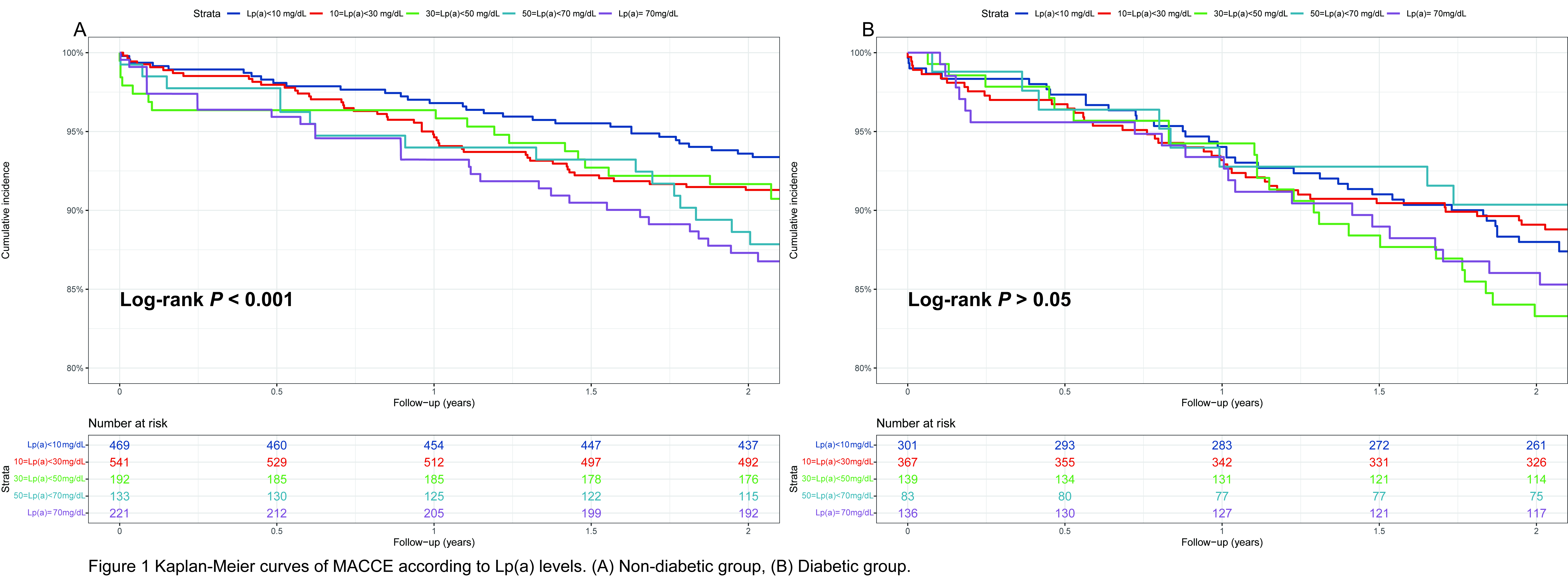Lots of interesting abstracts and cases were submitted for TCTAP 2023. Below are the accepted ones after a thorough review by our official reviewers. Don’t miss the opportunity to expand your knowledge and interact with authors as well as virtual participants by sharing your opinion in the comment section!
TCTAP A-076
Association Between Lipoprotein(a) and Risk of Recurrent Adverse Events After Stroke in Patients With Coronary Heart Disease According to Different Glucose Metabolism Status
By Peizhi Wang, Jinqing Yuan
Presenter
Peizhi Wang
Authors
Peizhi Wang1, Jinqing Yuan1
Affiliation
Fuwai Hospital, China1
View Study Report
TCTAP A-076
Diabetes
Association Between Lipoprotein(a) and Risk of Recurrent Adverse Events After Stroke in Patients With Coronary Heart Disease According to Different Glucose Metabolism Status
Peizhi Wang1, Jinqing Yuan1
Fuwai Hospital, China1
Background
This study was based on a national prospective multicenter cohort of patients with CAD consecutively enrolled from January 2015 to May 2019. The current analysis included 2,649 post-stroke patients with available Lp(a) data. The primary outcome was MACCE, covering all-cause mortality, myocardial infarction, and target vessel revascularization.
Methods
This study was based on a national prospective multicenter cohort of patients with CAD consecutively enrolled from January 2015 to May 2019. The current analysis included 2,649 post-stroke patients with available Lp(a) data. The primary outcome was MACCE, covering all-cause mortality, myocardial infarction, and target vessel revascularization.
Results
Among 2,649 post-stroke patients (median age 64.0 years, 71.4 % men). Diabetes was reported in 1,058 patients (39.9%), who presented lower Lp(a) levels than patients without diabetes (p = 0.030). During a median follow-up of 748 days, the primary outcome was reported in 360 patients (13.6%). In the univariable Cox regression analysis, Lp(a) was associated with the risk of MACCEs at 2-year follow-up in the overall population and in non-diabetic subjects, but not in diabet¬ic subjects. According to the multivariable Cox regression analysis, the independent association of Lp(a) concentrations and the risk of MACCEs was observed in non-diabetic subjects, but not in subjects with diabetes. Moreover, very high levels of Lp(a) (> 70 mg/dL) were independently related to the risk of long-term MACCEs in non-diabetic patients (adjusted HR: 2.027; 95% CI, 1.221-3.367; P = 0.006), but not in diabetic patients.


Conclusion
In this real-world, prospective cohort study including large sample of CAD population with recent history of stroke, elevated Lp(a) concentrations were significantly associated with the risk of MACCEs, and very high Lp(a) levels (> 70 mg/dL) were associated with poor prognosis in non-diabetic patients, but not in diabetics.


